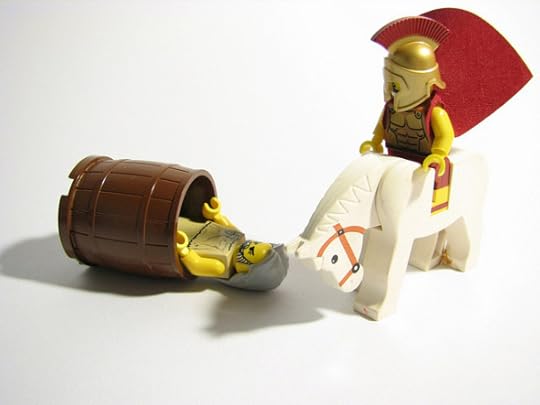Faith as Constant Revolution: Some Thoughts on Heretics, Tricksters and Cynics
Fundamental reformations that transform the constellation we use to navigate and understand religious life have occurred at various times throughout history. These events don’t simply call religion to live up to its ideals, but rather transform the very way we understand those ideals. They are thus fundamental ruptures in the very coordinates of religious understanding.
Words like “religion,” “church,” “God,” “theist,” “atheist,” and “theology” continue to be used, but what these words harbor is so dramatically transformed that the new meanings blow up the old (much to the surprise and consternation of the establishment).
When a religious system starts to be questioned at this (qualitative rather than quantitative) level, it’s possible to identify some revolutionary group both stirring up trouble and getting into trouble. Depending upon the context, the trouble they get into might range from social exclusion and job loss to torture and execution.
But time and again the system (1) identities heretics (dissidents within the system, in contrast to agitators from outside the system), (2) attempts to inoculate itself against them, and (3) seeks to eliminate them. After the dust has settled either the old master has retained power, or a new master is crowned (who might be more benevolent than the last).
The heretic can thus be said to operate in the space between two masters. Asking questions, critiquing the status quo and refusing easy answers. They are the tricksters and the cynics who occupy existing structures in order to subvert the present order and reveal inherent antagonisms in the system. This tradition of the trickster has a long history with figures including Prometheus (Greek mythology), Diogenes (Greek philosophy), the Coyote and Raven (First Nation mythologies) and Mercurious (Roman mythology), right through numerous religious prophets and into modern figures like Charlie Chaplin (to name but a few).
The question often asked in these moments of upheaval concerns what the new system will look like, what the new orthodoxy will be. When the tricksters have had their day, what will be left, and what foundations will we have upon which to build/rebuild.
However, what if this space of the in-between is itself the alternative? What if this protest is the very space that we need to affirm? Or rather, what if heresy is not something that arises from some structure called “faith,” but rather that “faith” can be used as the name of the very act of heresy?
If faith is thought of as a protest against existing masters, then the person of faith is one committed to the ongoing struggle with and against structures of power. Which means also undermining those structures in themselves.
The notion that revolutions (political, religious and/or cultural) are problematic because of the way that they simply “revolve” (i.e. overthrow old masters to institute new ones) thus misses the fundamentally productive nature of grassroots revolutionary justice movements. For while these movement do revolve, they are at their best when they act like a needle on a record, with the next revolution of the needle happening on a different level than the last.
A productive revolution places us in a better circle than the previous one, handing on the baton to the next band of heretics. In other words, it’s true that new masters will arise, but moral victories can be gained (marriage equality etc.) and these new masters will themselves be overturned in the name of what Derrida called an undeconstructable justice.
In this way, the figure of the one in exile, the one who questions, subverts, and overturns the establishment, is not that of a mere transitional bridge leading to a more honest and authentic expression of faith, but rather they act as a direct expression of it.
Peter Rollins's Blog
- Peter Rollins's profile
- 314 followers




